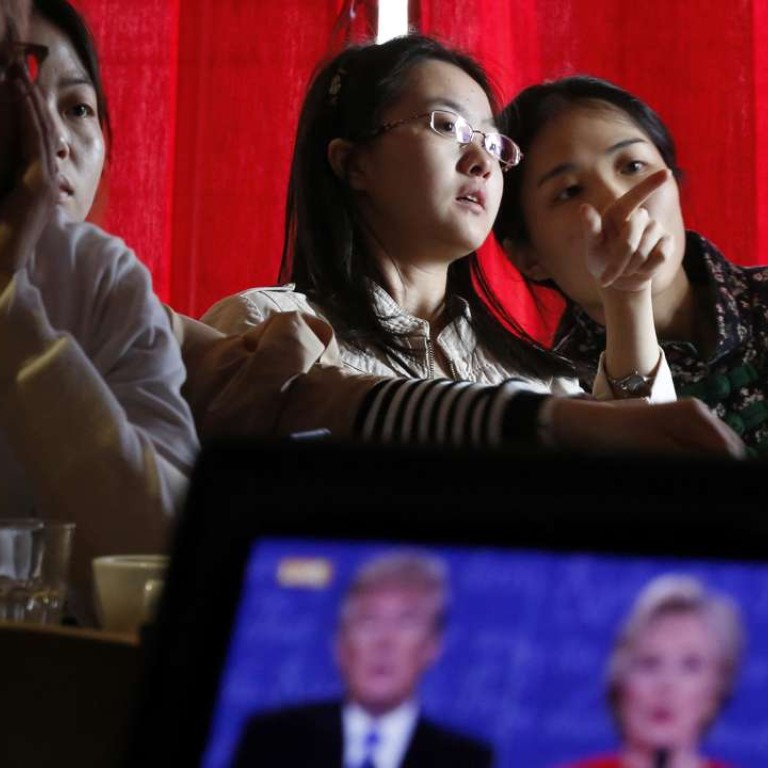
Clinton more popular than Trump in China, Pew survey finds
A survey released on Wednesday found that Hillary Clinton is better liked than Donald Trump in China, where the US presidential election – and the criticisms both candidates have made of Chinese policy – have generated intense attention.
Clinton was seen favourably by 37 per cent of respondents in a survey in mainland China conducted by the Washington, DC-based Pew Research Centre, while just 22 per cent saw Trump favourably. At the same time, 35 per cent of respondents saw Clinton unfavourably, while 40 per cent had an unfavourable impression of Trump.
The survey found that Chinese interest in the United States comes with strong scepticism. More than 80 per cent of respondents said they considered the US to be a threat to China.
While the Pew survey has no bearing on the US election, it offers a rare glimpse of the opinions of ordinary Chinese, whose views can be hard to discern due to China’s censorship of the media and social media channels.
US President Barack Obama was seen favourably by 52 per cent of respondents, up from 31 per cent in a similar survey in 2013 but still below 62 per cent shortly after he took office in 2009.
The next president will have to work with China on several important fronts. On issues like climate change, both countries have found some common ground and jointly announced last month that they would join an international agreement to cut carbon emissions. On others, like the South China Sea and North Korea’s nuclear weapons programme, Beijing and Washington are deeply divided.

Chinese state broadcaster CCTV provides selective and largely sporadic coverage of the US presidential election. But ever-growing numbers of Chinese tourists, immigrants and students are travelling to the US and seeking information about the country on the internet.
Pew’s survey was conducted between April 6 and May 8 and included in-person interviews with more than 3,100 Chinese. Pew said it had a margin of error of 3.7 percentage points. Participants were asked how much confidence they had in Obama, Clinton and Trump to “do the right thing regarding world affairs”.
Clinton has a longer history of engagement with China than Trump, dating back more than two decades to her famous 1995 speech in Beijing in which the then-first lady declared that “human rights are women’s rights, and women’s rights are human rights”. As secretary of state, Clinton oversaw the American “pivot” to the Pacific, a hallmark of Obama’s foreign policy that has been derided by China.
Some people may want the new president to interfere in some issues in China if they disagree with government policy
Trump has made some of his signature clothing line in China and boasted during the campaign of his dealings with Chinese businessmen. But he has repeatedly blamed China for the loss of American jobs and accused China of cheating at global trade. His campaign website says he would use “every lawful presidential power” to punish China if it “does not stop its illegal activities, including its theft of American trade secrets.”
Renmin University political science professor Zhang Ming, who was not involved in the Pew survey, said he had found opinions varied widely on the two candidates, depending in large part on how people felt about China itself.
“Some Chinese agree with government policies, so they hope the candidate who wins the election will be friendly towards China,” Zhang said. “Some people may want the new president to interfere in some issues in China if they disagree with government policy.”

